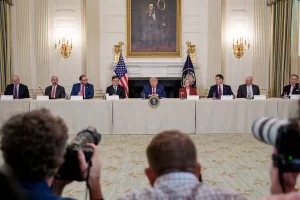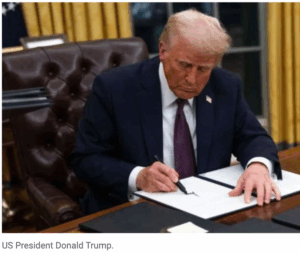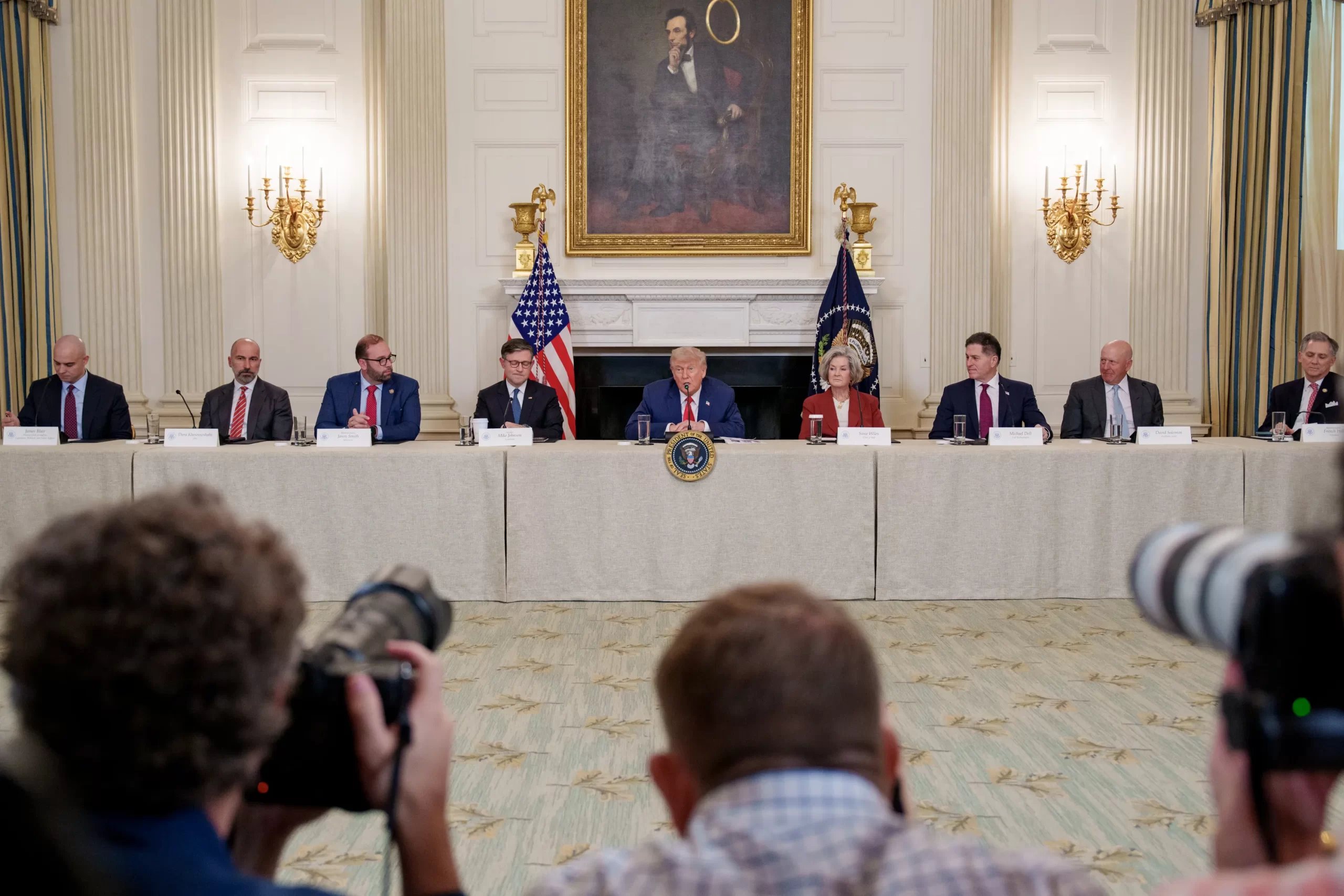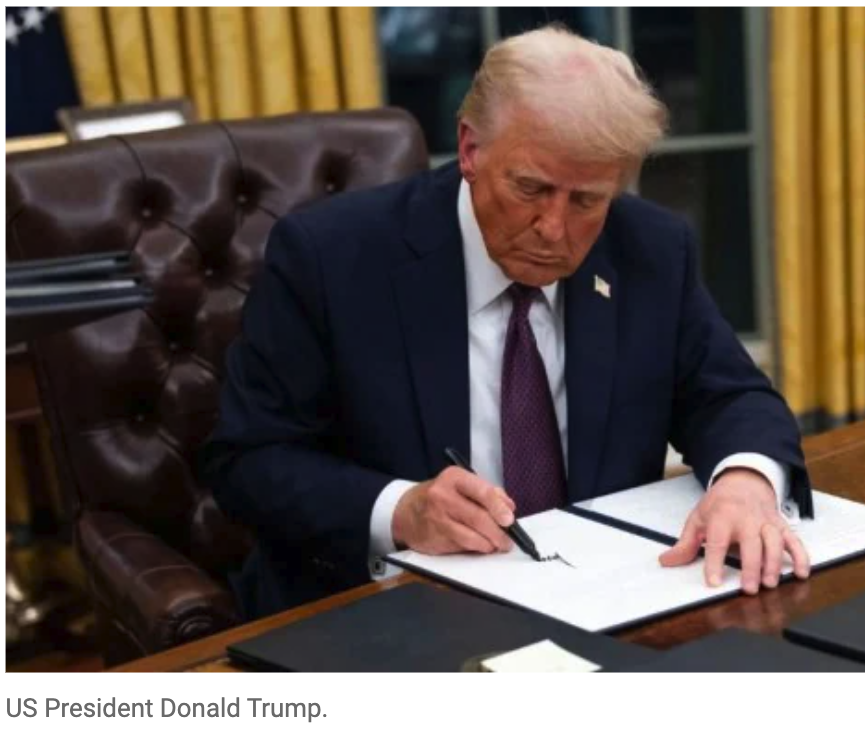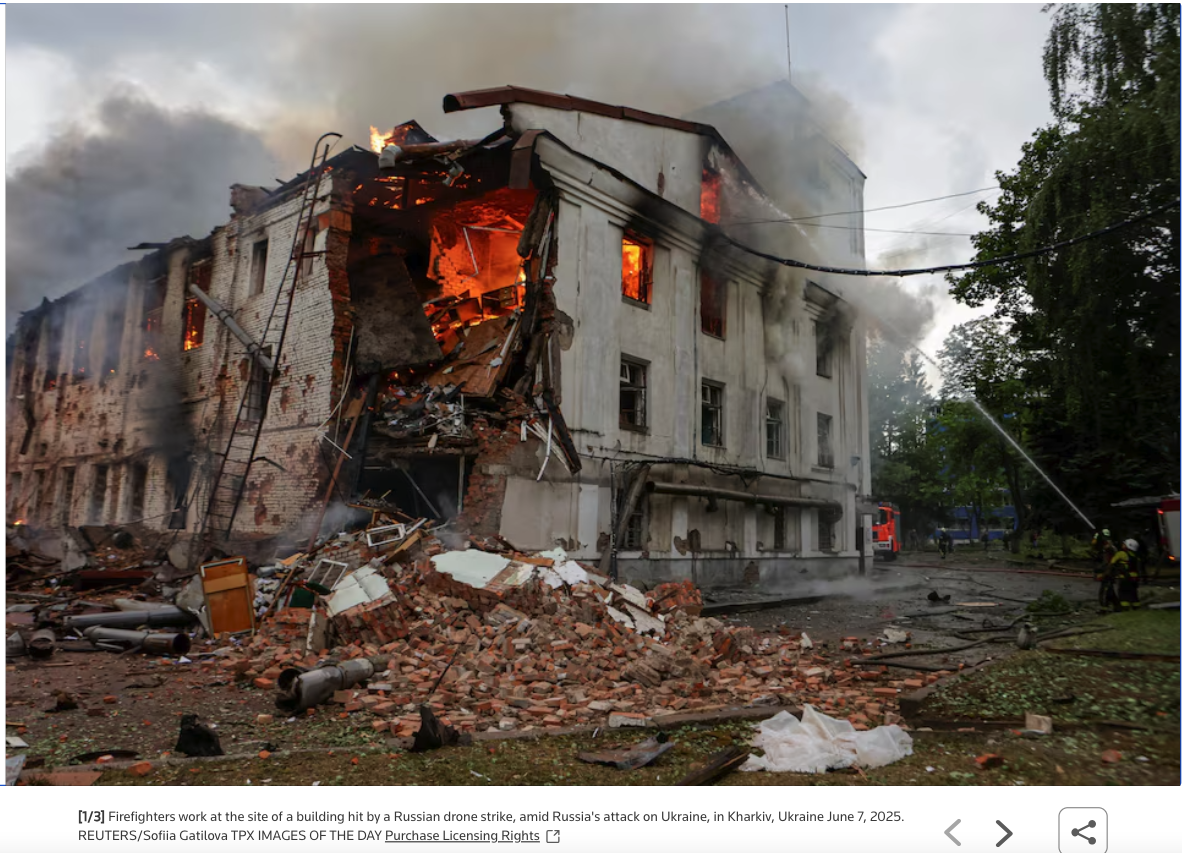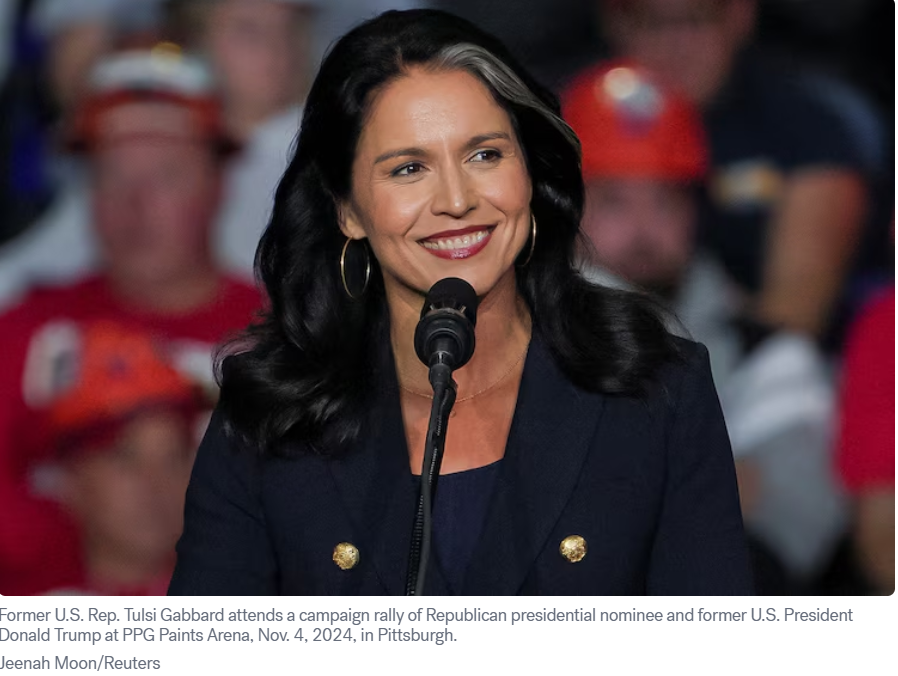Washington, D.C. – Former U.S. Representative Tulsi Gabbard, nominated by President Donald Trump for the position of Director of National Intelligence (DNI), appeared before the Senate for her confirmation hearing. Lawmakers questioned her on foreign policy positions, national security stance, and past engagements with foreign leaders.
Foreign Relations and Allegations of Hezbollah Meeting
During the hearing, Gabbard denied allegations that she met with members of Hezbollah during a 2017 trip to Syria and Lebanon. She described the claims as “absurd accusations” but confirmed that she had met with Syrian President Bashar al-Assad during the visit. The meeting had previously drawn criticism due to Assad’s role in the Syrian civil war.
Position on Edward Snowden and National Security
Gabbard was asked whether she would support a pardon for Edward Snowden, the former NSA contractor who leaked classified information in 2013. She stated that her role as DNI would focus on protecting national security and preventing unauthorized disclosures, avoiding any direct stance on Snowden’s legal status.
Views on Russia and U.S. Intelligence Community
Senator Mark Warner raised concerns about Gabbard’s previous statements on Russia’s invasion of Ukraine, particularly her suggestion that U.S. actions contributed to the conflict. Warner questioned whether such views could affect the trust of U.S. intelligence agencies and international allies under her leadership.
Gabbard defended her record, asserting that her foreign policy approach prioritizes U.S. national security interests and that she does not align with authoritarian regimes.
Commitment to Intelligence Integrity
Throughout the hearing, Gabbard reaffirmed her commitment to maintaining the independence of intelligence operations from political influence. She cited her experience in Congress and the military as qualifications that would allow her to serve effectively in the role.
Confirmation Outlook
Gabbard’s nomination remains a subject of debate among lawmakers. While some Republican senators have expressed support, others, particularly among Democrats, have raised concerns over her past statements and foreign policy positions. The Senate will continue deliberations before making a final decision on her confirmation.



